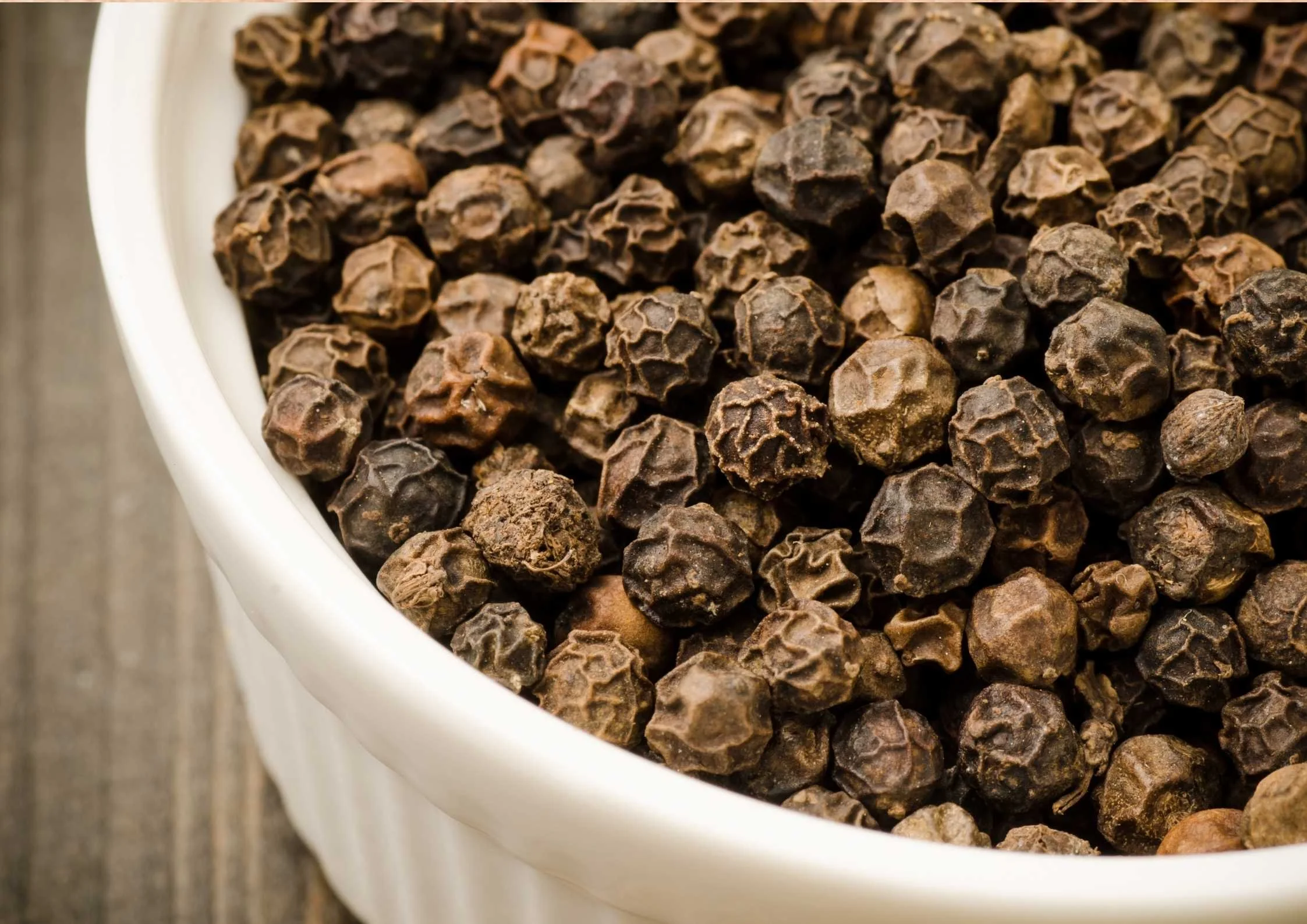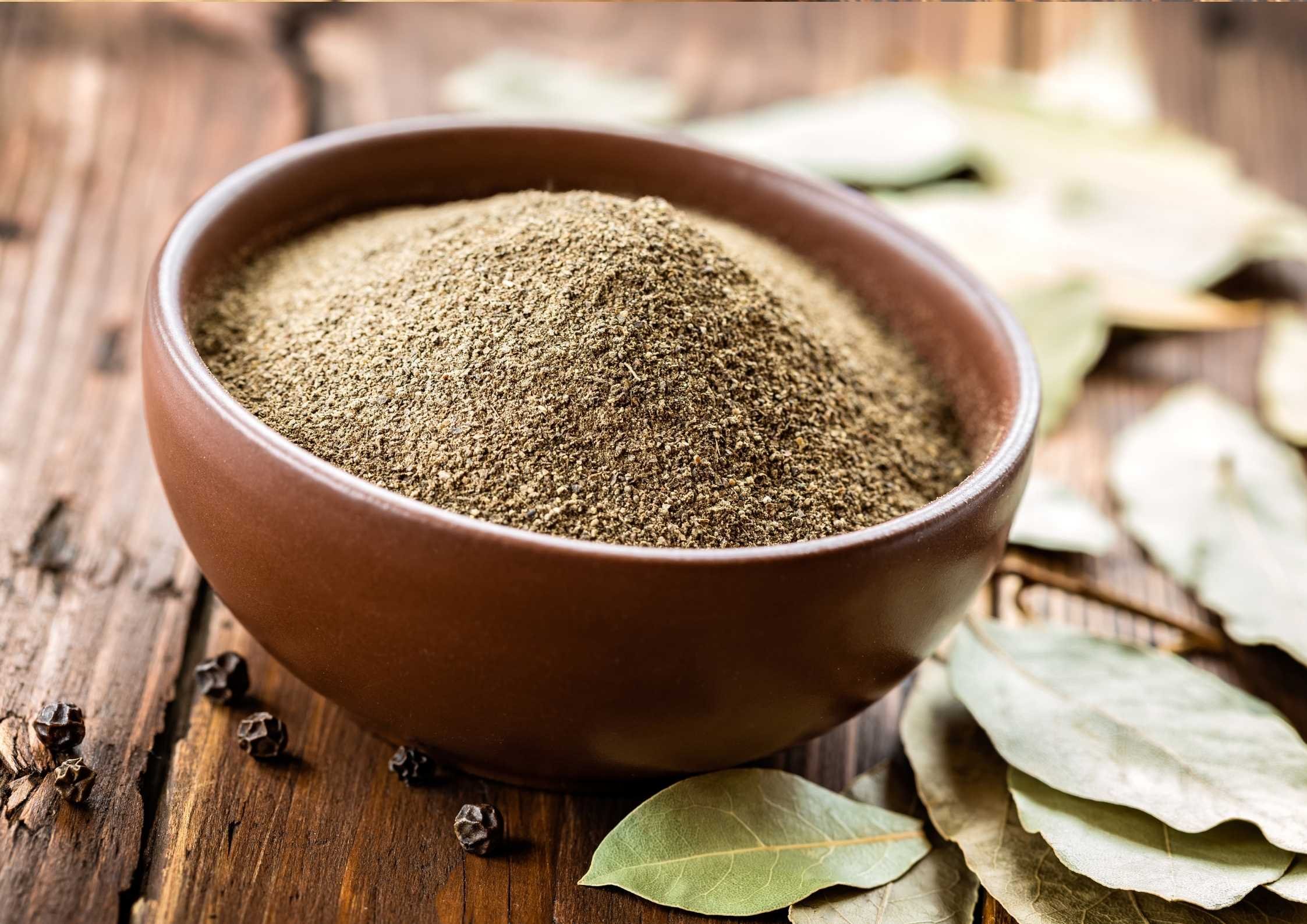Power of Black Pepper
Did you know that black pepper is one of the most powerful spices in the world? It has been used for centuries as a natural remedy for all sorts of health problems.
Black pepper is one of the most popular spices in the world, and for good reason. It's flavorful and aromatic, and it can be used in a variety of dishes.
But black pepper is more than just a seasoning - it's also a powerful herb with many health benefits. In this post, we'll take a look at some of the ways black pepper can improve your health.
What is Black Pepper?
Black pepper (Piper nigrum) is a flowering vine that is native to India. The black pepper plant grows in tropical climates and can reach up to 33 feet in length.
The black pepper vine produces small, dark berries known as peppercorns. These peppercorns can be used whole or ground into a fine powder.
Black pepper has a sharp, pungent flavour that is often used to add heat to dishes. It is one of the most widely used spices in the world and is a key ingredient in many cuisines, including Indian, Thai, Chinese, and Vietnamese cuisine.
Types of Black Pepper:
The main types of black pepper are:
Malabar black pepper:
Malabar black pepper is grown in the Malabar region of India. It has a strong, pungent flavour and a fruity aroma.
Tellicherry black pepper:
Tellicherry black pepper is grown in the Indian state of Kerala. It is considered to be the best quality black pepper available. Tellicherry black peppers are larger than other types of black pepper and have a milder, more complex flavour.
Lampong black pepper:
Lampong black pepper is grown in Indonesia. It has a sharp, intense flavour and a slightly floral aroma.
Sarawak black pepper:
Sarawak black pepper is grown in Malaysia. It has a milder flavour than other types of black pepper and a slightly fruity aroma.
Penang black pepper:
Penang black pepper is grown in Malaysia and Indonesia. It has a strong, pungent flavour and a slightly fruity aroma.
Nutritional value of black pepper:
Black pepper is a good source of vitamins A, C, and K.
Black pepper is a good source of minerals such as iron, magnesium, and manganese.
1 tablespoon of black pepper contains:
3 calories
0 grams of fat
0.9 grams of carbs
0.4 grams of protein
2% of the Daily Value (DV) for vitamin A
6% of the DV for vitamin C
2% of the DV for vitamin K
5% of the DV for iron
4% of the DV for magnesium
4% of the DV for manganese.
Black pepper also contains small amounts of other nutrients.
Uses of Black Pepper:
Black Pepper has multiple uses,
Whole Black Pepper in Food:
Whole black peppercorns can be used to add flavour to soups, stews, sauces, and marinades. They can also be used to make pepper steak, peppercorn chicken, and other meat dishes.
Ground Black Pepper in Food:
Ground black pepper is often used as a seasoning for meat, poultry, and fish. It can also be used to add flavour to salads, vegetables, soups, and sauces.
Black Pepper Essential Oil:
Black pepper essential oil is extracted from the berries of the black pepper plant. It has a strong, spicy aroma and can be used in aromatherapy or added to diffusers and candles.
Black Pepper as Home remedy:
Black pepper has been used as a home remedy for centuries. It is believed to have many health benefits, including the ability to improve digestion, relieve congestion, and reduce inflammation.
How Does Black Pepper Work?
Black pepper contains a compound called piperine. Piperine is responsible for the sharp, spicy flavour of black pepper.
Piperine also has many health benefits. It is a potent antioxidant and anti-inflammatory agent. Piperine has been shown to improve digestion, relieve congestion, and reduce inflammation.
Piperine can also help to boost the absorption of other nutrients, such as vitamins and minerals.
Health Benefits of Black Pepper:
The health benefits of black pepper are largely due to the presence of piperine. Piperine is a potent antioxidant and anti-inflammatory agent that can help to improve digestion, relieve congestion and reduce inflammation.
1. Improve Digestion:
Black pepper is a common ingredient in Indian cuisine, and it's no coincidence - black pepper can help to boost digestion.
The active compound in black pepper, piperine, stimulates the production of hydrochloric acid in the stomach, which aids in digestion. Hydrochloric acid helps to break down food and absorb nutrients from the food we eat.
2. Relieve Congestion:
Black pepper can also help to relieve congestion. The piperine in black pepper has expectorant properties, which means it helps to loosen phlegm and clear the respiratory tract.
Black pepper is also a natural decongestant. The piperine in black pepper helps to thin mucus and clear congestion from the lungs and nose. Adding black pepper to your meals can help to relieve congestion and improve breathing.
3. Reduces Inflammation:
Black pepper is also a potent anti-inflammatory agent. Piperine, the active compound in black pepper, inhibits the production of inflammatory cytokines.
This means that black pepper can help to reduce inflammation throughout the body. Black pepper has been shown to be effective in reducing inflammation in the skin, joints, and gut.
4. Improves Absorption of Nutrients:
Black pepper can also help to improve the absorption of other nutrients. The active compound in black pepper helps to increase the bioavailability of nutrients.
This means that black pepper can help your body to absorb more vitamins and minerals from the food you eat.
Adding black pepper to your meals can help to improve nutrient absorption and boost overall health.
5. Boosts Brain Health:
Black pepper can also help to boost brain health. The piperine in black pepper helps to increase the production of dopamine and serotonin.
Dopamine is a neurotransmitter that helps to regulate mood and emotion. Serotonin is a neurotransmitter that helps to regulate sleep, appetite, and mood.
Piperine has also been shown to improve cognitive function and memory. Adding black pepper to your diet can help to improve brain function and protect against age-related cognitive decline.
6. Promotes Weight Loss:
Black pepper can also help promote weight loss. The active compound in black pepper, piperine, helps to increase metabolism and burn fat.
Piperine has also been shown to reduce appetite and food intake. Adding black pepper to your diet can help you to lose weight by increasing metabolism and reducing appetite.
7. Fights Cancer:
Black pepper may also help to fight cancer. The piperine in black pepper has been shown to inhibit the growth of cancer cells.
Piperine has also been shown to induce apoptosis, or cell death, in cancer cells. Black pepper may help to prevent and treat cancer by inhibiting the growth of cancer cells and inducing cell death.
8. Boosts Immune System:
Black pepper can also help to boost the immune system. The piperine in black pepper helps to increase the production of white blood cells.
White blood cells are responsible for fighting infection and disease. Adding black pepper to your diet can help to boost the immune system and protect against illness.
9. Improves circulation:
Black pepper is also known to improve circulation. The piperine in black pepper helps to dilate blood vessels and increase blood flow.
This can help to improve circulation and reduce the risk of heart disease. Adding black pepper to your diet can help to improve circulation and reduce the risk of heart disease.
10. Protect Against Disease:
Black pepper can also help to protect against disease. The piperine in black pepper has antioxidant and antibacterial properties.
This means that black pepper can help to protect the body against free radicals and bacteria. Adding black pepper to your diet can help to protect against disease and improve overall health.
Interesting facts about black pepper:
Black pepper is the world's most traded spice.
Black pepper is native to India and is used extensively in Indian cuisine.
India is the largest producer of black pepper in the world.
Piperine, the active compound in black pepper, was first isolated in 1820. Piperine has been shown to increase the bioavailability of nutrients.
Bottom Line:
Black pepper is a spice that is native to India. Black pepper is the world's most traded spice and is used extensively in Indian cuisine. The active compound in black pepper, piperine, has been shown to have many health benefits. Black pepper can help to improve absorption of nutrients, boost brain function, promote weight loss, fight cancer, boost the immune system, and protect against disease.











